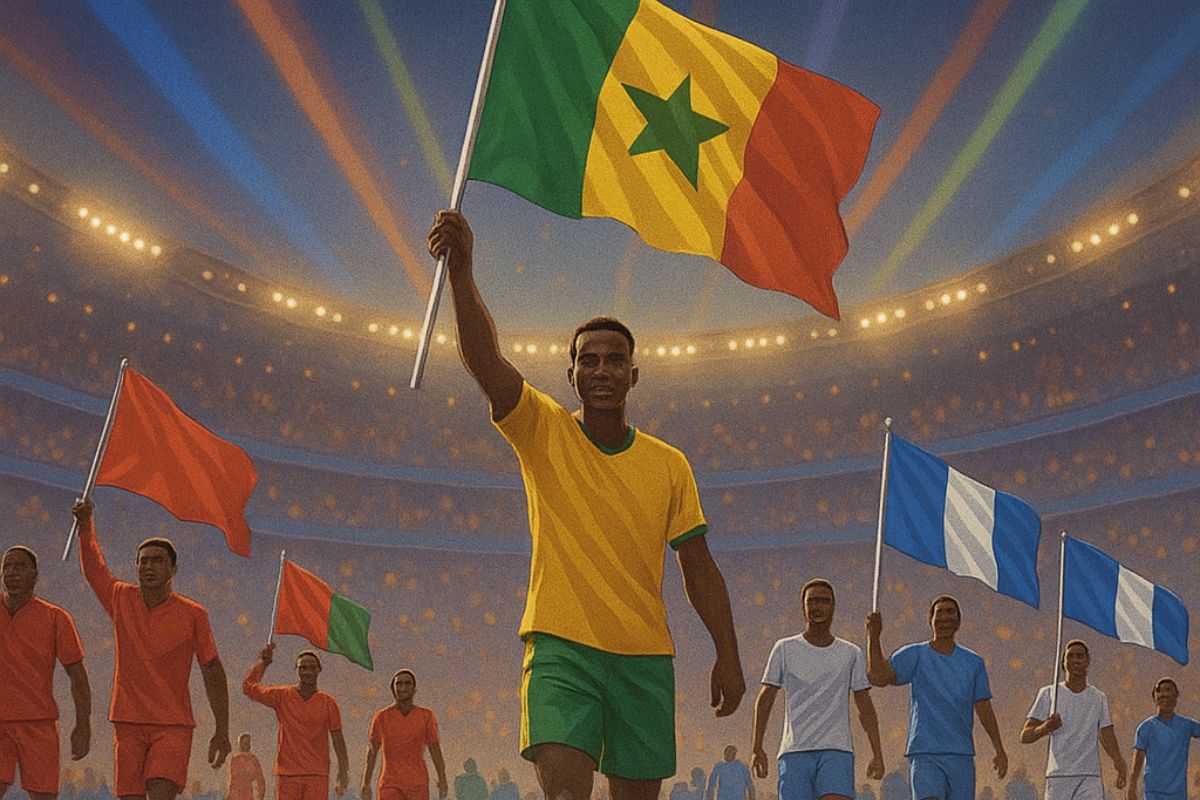AFCON, CHAN, African Games… The African continent is hosting more and more international competitions. But what is the real impact for host countries? Between economic benefits, soft power, and sometimes underused infrastructure, the equation remains complex.
Africa: The New Hub for Major Sporting Gatherings
Over the past decade, Africa has firmly established itself on the map of international sporting events. From the Africa Cup of Nations (AFCON) to the African Nations Championship (CHAN), the African Games and the Francophonie Games, the continent is increasingly hosting large-scale competitions. Yet behind the fireworks of opening ceremonies lies a fundamental question: are these events truly beneficial and sustainable for host countries?
Massive Investments… Not Always Profitable
AFCON 2023 in Côte d’Ivoire (€1.3 billion) and the 2023 Francophonie Games in Kinshasa ($324 million) exemplify the vast costs of these events.
Main areas of expenditure include:
- Construction of modern stadiums
- Upgrading infrastructure (airports, roads, hotels)
- Logistics, security, and overall organization
Some countries manage to generate lasting benefits, while others face financial challenges without guaranteed return on investment.
To have a lasting impact, these events must be integrated into a long-term sports policy that includes legacy planning and post-event use of sports facilities.
AFCON 2023 achieved massive audiences and substantial media and image impact. Conversely, the 2024 African Games in Ghana have gone almost unnoticed despite major national investment, failing to generate a sustainable legacy.
Football: The Undisputed King
Football remains the economic and media engine of African sports. AFCON draws up to 800 million cumulative viewers, significantly boosting the soft power of host nations. CHAN, focused on local players, also helps nurture domestic talent.
Success Stories and Ongoing Challenges
✔️ Morocco successfully leveraged its CHAN 2018 infrastructure through a strategy focused on tourism, training, and reuse of facilities. The country is now preparing to host AFCON 2025 and the 2030 World Cup.
✔️ Côte d’Ivoire, after the successful 2017 Francophonie Games, followed up with AFCON 2023. The country should now pursue further ambitions, such as hosting a Futsal World Cup.
❌ The DRC, after hosting the 2023 Francophonie Games, remains weighed down by large investments and now faces the challenge of repurposing infrastructure for future events like the African Games or an AFCON.
✔️ Senegal, set to host the Youth Olympic Games (YOG) in Dakar in 2026, must already start preparing to host additional major events like an AFCON or world championships.
All countries must adopt a long-term strategy for sporting events to ensure they serve as true development levers, delivering lasting socio-economic, tourism, media, and political impacts.
Key Data on Major Events
| Event | Year | Location | Participants | Estimated Budget | Audience | Impact | Source |
|---|---|---|---|---|---|---|---|
| African Games | 2015 | Brazzaville, Congo | ~15,000 | €50.3M | N/A | Symbolic return to Brazzaville | Wikipedia |
| African Games | 2019 | Rabat, Morocco | ~6,000 | N/A | N/A | Infrastructure modernization | Wikipedia |
| Francophonie Games | 2017 | Abidjan, Côte d’Ivoire | ~3,500 | €11.4M | 500M | Francophonie influence | Wikipedia, Official Report |
| Francophonie Games | 2023 | Kinshasa, DRC | ~3,000 | $324M | N/A | Budget overrun | VOA Africa |
| AFCON | 2017 | Gabon | 16 teams | €500M | 500M | Modern stadiums | RFI, Wikipedia |
| AFCON | 2019 | Egypt | 24 teams | €200–250M | 600M | Largest AFCON ever | BBC Sport |
| AFCON | 2021 | Cameroon | 24 teams | €885M | 600M | Investment boost | Jeune Afrique |
| AFCON | 2023 | Côte d’Ivoire | 24 teams | €1.3B | 800M | Soft power showcase | Le Monde |
| CHAN | 2016 | Rwanda | 16 teams | €21M | 150M | Local development | New Times Rwanda |
| CHAN | 2018 | Morocco | 16 teams | €25M | 200M | Sports hub | Morocco World News |
| CHAN | 2020 | Cameroon | 16 teams | €32M | 180M | CAF flagship host | CAF Online |
Impact: Development Engine or Mirage?
✅ Advantages:
- Urban infrastructure development
- Job creation and local economic boost
- Enhanced international reputation and diplomacy
❌ Drawbacks:
- Risk of underused stadiums after the event (« white elephants »)
- Public debt
- Prioritization of sport over essential sectors like health and education
Conclusion & Recommendations: Turning Events into Sustainable Catalysts
Major sporting events in Africa offer tremendous opportunities for development, visibility, and social cohesion. But to become true levers of transformation—and not financial pitfalls—they must be guided by rigorous long-term strategies and legacy planning.
👉 Key Recommendations:
- Plan for the post-event phase: repurpose facilities for culture, concerts, and grassroots sports.
- Establish sustainable economic models: public-private partnerships, tourism-based revenue, etc.
- Engage local communities: ensure social benefits through inclusive participation.
- Ensure financial transparency and good governance.
- Promote mass sports: so that citizens benefit from infrastructure long after the event.
✅ If these recommendations are followed, major sports events can become catalysts for economic growth, social inclusion, and global recognition for African nations.

